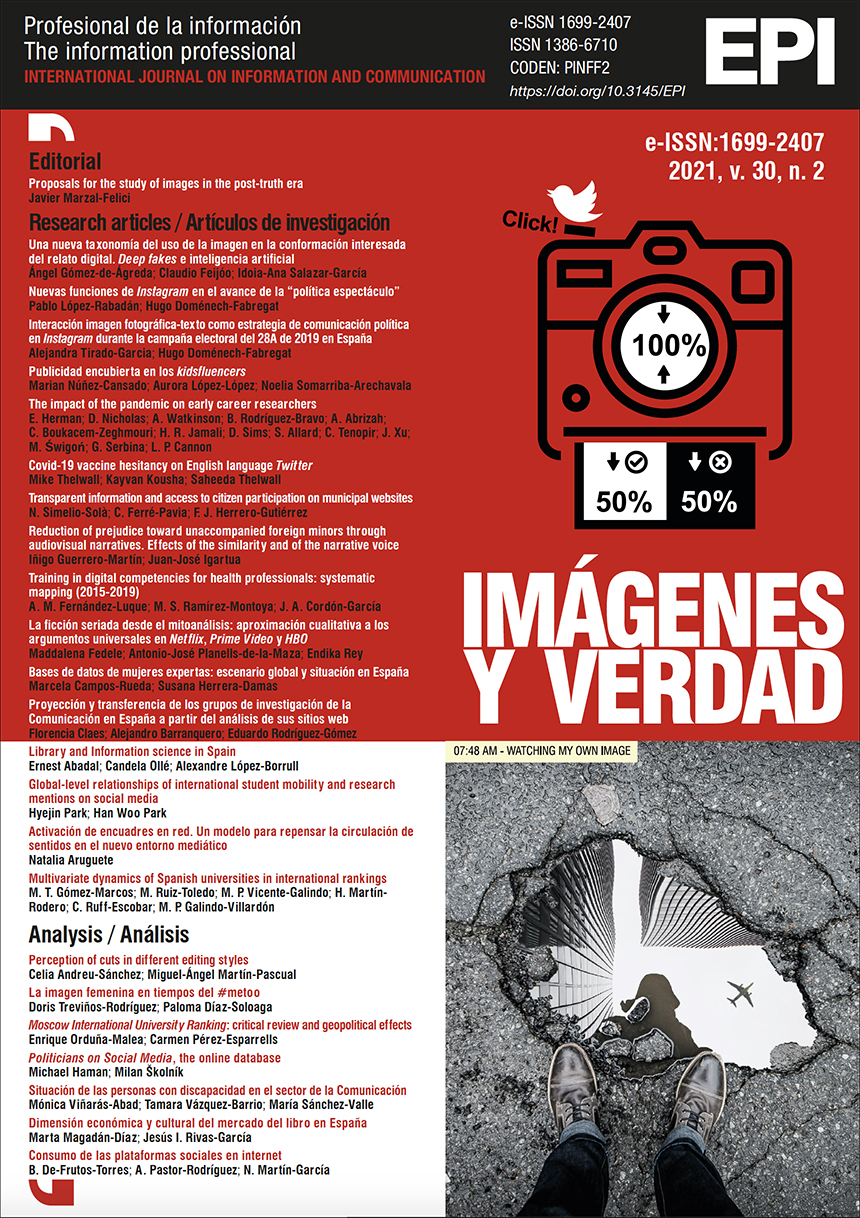Library and Information science in Spain: an assessment of 40 years of university studies
DOI:
https://doi.org/10.3145/epi.2021.mar.15Palabras clave:
Education, LIS, Librarianship, Information science, University studies, Academic programmes, Curricula, Crisis, Interviews, Likert survey, Challenges, Threats, Prospective, Evolution, Future, Opportunities, Priorities, Asessment, SpainResumen
Universities first taught Library and Information science (LIS) studies in Spain in 1982, reaching a zenith at the end of the 1990s. However, from 2000 onwards, student enrolment began to drop and some programmes closed, producing a crisis in the studies on offer, which is yet to end. The evolution of LIS education in Spanish universities over 40 years is analysed and its future is evaluated based on the opinions of academic leaders from Spanish university centres that offer LIS degrees. The article aims to provide a detailed analysis of the opportunities, threats and necessary priorities in the field and a general assessment of its chances of remaining an independent discipline. 23 interviews were carried out with lecturers of the Spanish university system, and a Likert questionnaire was responded by 34 experts. Disappointments are noted: loss of interest in the subject, failure to generate academic and professional visibility, and failure to take advantage of technological change to position the field in the mainstream. Opportunities: orienting the degree course toward new topics, and prioritising postgraduate programmes. Threats: loss of students, failure to convey the value of the discipline to society, and failure to redefine its profile. Priorities: adapting current qualifications more closely to needs, participating in European research projects, and adopting technological change. More than 60% of the respondents agree that Library and Information science will remain an independent discipline in the short and medium term, while 20% disagree, although they do not see this as a problem.
Descargas
Descargas
Publicado
Cómo citar
Número
Sección
Licencia
Condiciones de difusión de los artículos una vez son publicados
Los autores pueden publicitar libremente sus artículos en webs, redes sociales y repositorios
Deberán respetarse sin embargo, las siguientes condiciones:
- Solo deberá hacerse pública la versión editorial. Rogamos que no se publiquen preprints, postprints o pruebas de imprenta.
- Junto con esa copia ha de incluirse una mención específica de la publicación en la que ha aparecido el texto, añadiendo además un enlace clicable a la URL: http://revista.profesionaldelainformacion.com
La revista Profesional de la información ofrece los artículos en acceso abierto con una licencia Creative Commons BY.




